Haba Village (哈巴村) lies sequestered in a pastoral valley at the northern base of Haba Snow Mountain (哈巴雪山). Its 4,000-plus residents make their living through agriculture and livestock. Modern mechanization such as trucks and ground tilling machines may have reached the fields but beasts of burden—animal or human— remain an everyday sight.
| Location: 7 km north-northeast of Haba Snow Mountain summit | |
| Altitude in Meters: 2,650 |
Community
Ethnic minorities figure prominently in the village. They generally congregate within their own hamlets, and some women wear their clan’s distinctive ethnic clothing. Starting from the main road through town and ascending slopes to the west, the hamlets are as follows:
| Hamlet Name | Ethnicity | ||
| Guluba | 古鲁八 | Naxi 纳西 | |
| Yangshan | 阳山村 | Han 汉 | |
| Longwangbian | 龙汪边 | Hui 回 | |
| Lan Village | 兰家村 | Hui 回 | |
| Yi Village | 彝家村 | Yi 彝 |
Other ethnic minorities in Haba Village include Bai, Lisu, Pumi, and Tibetan. The various ethnicities tend to get along, but some boundaries are necessary. During a hike up Gan Mountain (干山) north of town, I encountered many trees with Guluba (古鲁八) carved into the trunk. My Naxi guide explained—this is so that their neighbors know where Naxi lands begin.
The village keeps a close eye on their younger children, who receive instruction at the local elementary school. Older students board in Shangri-La City (香格里拉), three hours away by car.
Local economy
Market day happens two to three times per month. Stalls go up along the main street and locally grown food, tools, and ethnic clothing are offered for sale. Visitors must inquire when the next market day takes place, as the schedule is tied to the lunar calendar.
Local residents maintain beehives on the mountain slopes for honey production. The hives are constructed from a section of hollow tree trunk. They have closed ends, except for a small hole for the bees to come and go. The bees arrive in spring, use the hive for a while, and migrate later in the year.
I once brought a jar of pure, processed honey to the village which I had purchased at a city supermarket. Honey is expensive or unavailable at Haba guest houses, and I fancied lathering it on my baba (粑粑, bread). The locals took one glance at my fine jar and laughed, calling it fake honey. I offered but they wouldn’t touch the stuff. They prefer the natural, unprocessed variety.
Tourism industry
There are some twenty guest houses and lodging establishments. These vary in pricing and style from bare basics (under 100rmb/day) to higher end and even luxury glamping (1,800rmb/day).
Around 200 men and their hard-working mules make a part-time living by guiding Haba Snow Mountain and Black Lake (黑海). Trekking business booms around major Chinese holidays, especially the first weeks of May and October. Each year, several thousand mountaineers from all over China attempt to reach the 5,396-meter Haba Snow Mountain summit. Most spend a night or two at Base Camp.


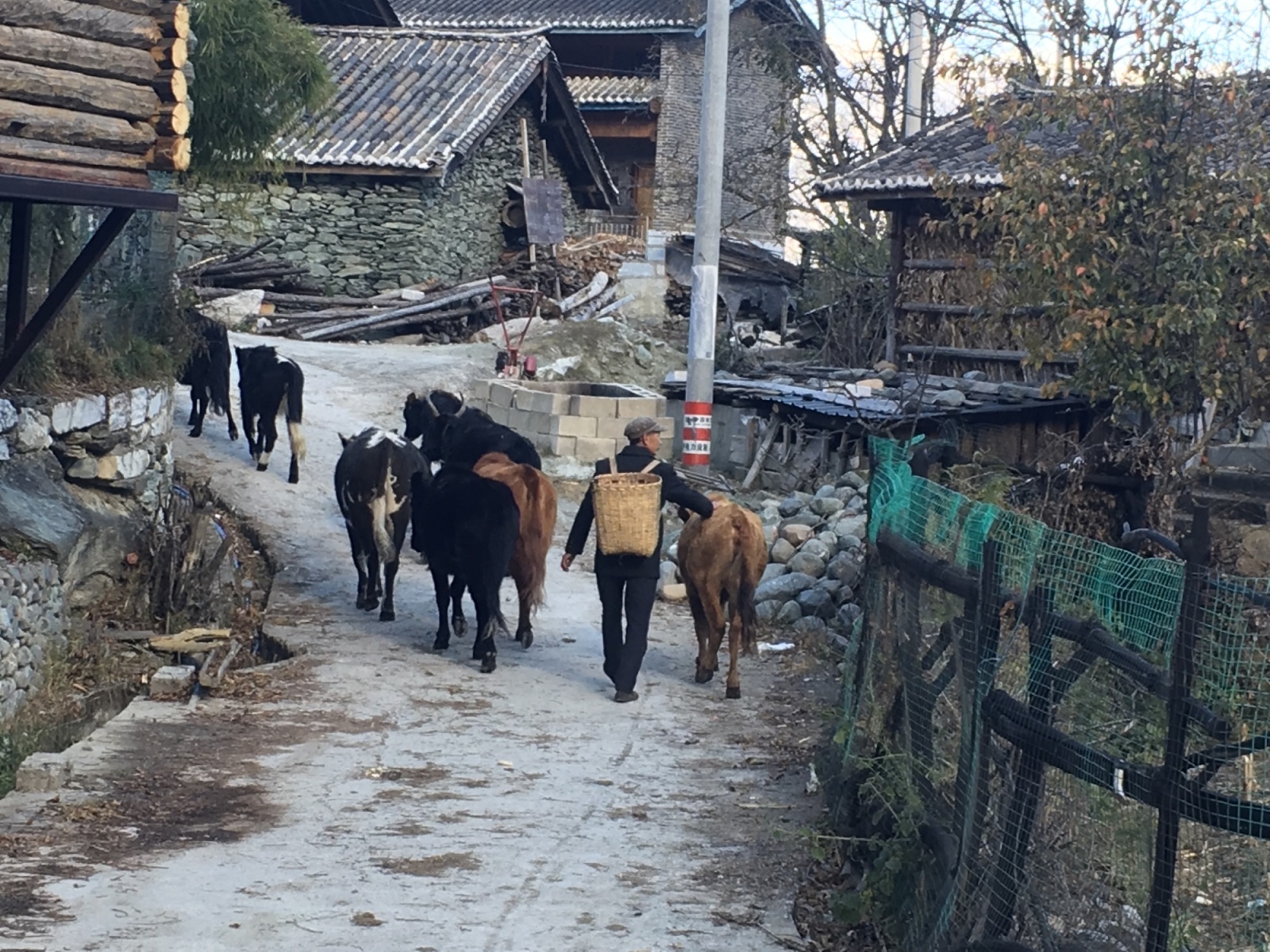
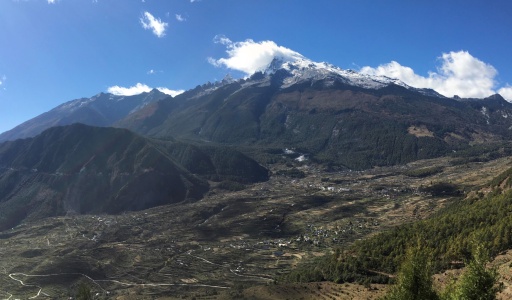 Haba Village beneath Haba Snow Mt
Haba Village beneath Haba Snow Mt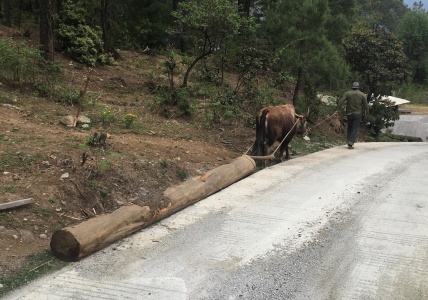 Animal power
Animal power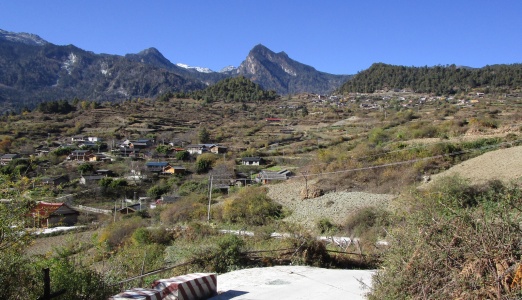 Lanhua Village (left) and Yi Village (upper right)
Lanhua Village (left) and Yi Village (upper right)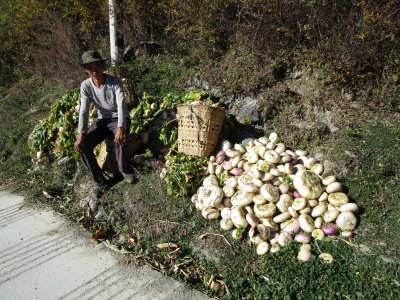 Chinese turnip harvest
Chinese turnip harvest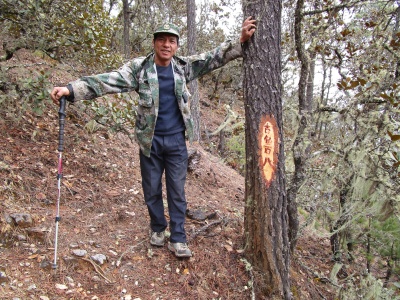 Guluba marks Naxi territory
Guluba marks Naxi territory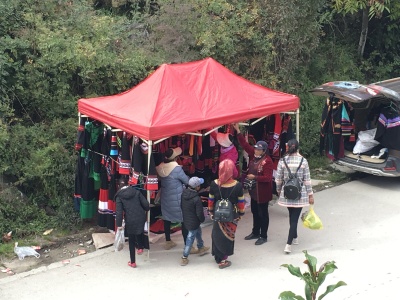 Selling ethnic clothing
Selling ethnic clothing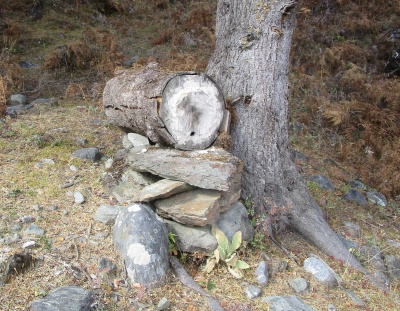 Rustic bee hive
Rustic bee hive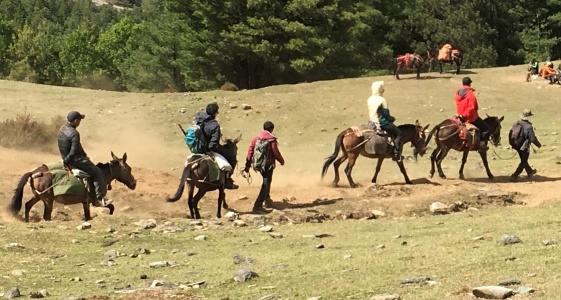 Guides and clients
Guides and clients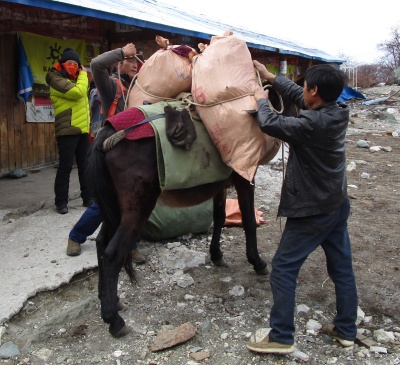 Guides loading mule
Guides loading mule